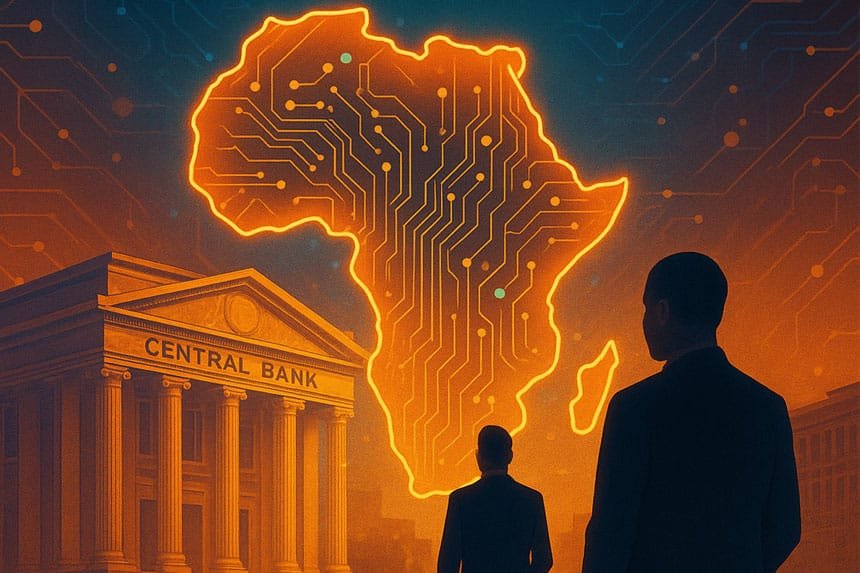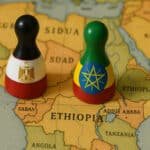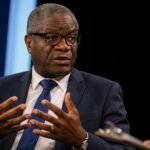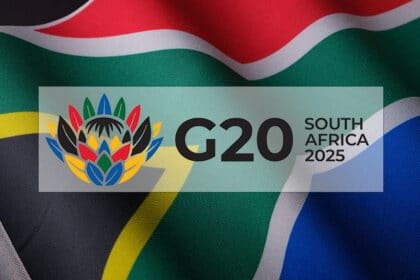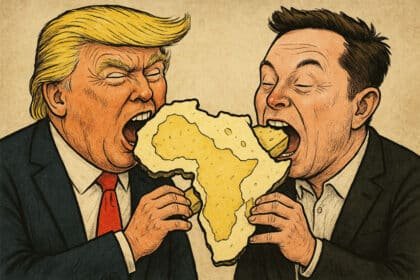Dakar, a Laboratory for Augmented Monetary Cooperation
For the first time, central banks from West Africa (BCEAO), Central Africa (BEAC), South Africa, Morocco, Kenya and Nigeria—alongside the Banque de France and Banco de Portugal—pitched their artificial-intelligence prototypes. Four panels, from the “transformative power” of AI to “financial stability,” dissected the potential of algorithms: machine-learning inflation forecasts, real-time banking stress-tests and automated detection of suspicious flows. Three figures dominated the discussions:
- Dakar, a Laboratory for Augmented Monetary Cooperation
- A US $1.5 Trillion Economic Jackpot
- Digital Sovereignty, the New Geopolitical Nerve
- Balancing Prudence and the Innovation Race
- From Leapfrog to “Full-Stack” Africa
- Central Banks, the Continent’s New Envoys
- A Technical Roadmap: Train, Pool, Standardise
- Toward an “AI-First” Financial Architecture
- A Global Chess Match
- 1.5 billion people expected on the African Continental Free-Trade Area by 2030;
- US $1.5 trillion of value AI could add to Africa, according to the UN;
- 30 % productivity gains already recorded on some supervisory pilots.
A US $1.5 Trillion Economic Jackpot
Senegal’s Finance Minister Cheikh Diba set the tone: “AI is not a luxury but a supply shock—financial inclusion, SME credit scoring, logistics optimisation and, above all, skilled jobs.” Mobile money, proof that Africa can leapfrog without bank branches, is the dress rehearsal: the next step is to graft predictive models onto 1.2 billion active mobile wallets. Regulators see themselves as conductors—providing secure APIs, pooling transactional data and certifying algorithms, a service they can monetise with fintechs.
Digital Sovereignty, the New Geopolitical Nerve
The African Union’s 2024 Continental AI Strategy sets a clear course: forge a 55-nation data market able to negotiate on equal terms with Washington, Beijing or Brussels. The creation of a Pan-African AI Council in Kigali (April 2025) with a US $250 million budget signals Africa’s entry into regulatory diplomacy—standardising governance models, enforcing data-localisation clauses and obliging cloud providers to support African languages.
Balancing Prudence and the Innovation Race
“We cannot let AI destabilise the system,” warned Paul Koffi Koffi, chair of the AMF-UMOA. Regulators fear an African flash crash triggered by rogue trading bots. Their immediate agenda:
- Data governance—common standards, sovereign storage, systematic encryption;
- Capacity-building—doubling central-bank data-scientists by 2027;
- Adaptive regulation—regulatory sandboxes for fintechs with clearly assigned liability breaks.
From Leapfrog to “Full-Stack” Africa
The vision is clear: don’t bolt AI onto rusty processes—reinvent them. Morocco’s TwinLink already deploys multilingual video avatars replying in Kiswahili or Fulani. Sahelian projects combine autonomous agents to coordinate irrigation and micro-credit; Côte d’Ivoire’s vocal “Superphone” targets 40 % illiteracy. This AI-native strategy echoes Africa’s jump to mobile telephony: skip PCs and branches for voice- and image-driven agents.
Central Banks, the Continent’s New Envoys
Traditionally discreet, Africa’s central banks are becoming diplomatic assets. The BCEAO’s AI Think Tank (CRIA), launched in 2024, proposes a “trusted cloud” for the whole WAEMU. The BEAC wants a cross-border macroeconomic data pool to feed climate-risk models. Together they gain bargaining power: access to 400 million consumers in exchange for tech transfers and local data-center commitments.
A Technical Roadmap: Train, Pool, Standardise
Four flagship measures emerged in Dakar:
- Pan-African AI-Supervision School—common curriculum for AI auditors in Dakar and Kigali, opening end-2026;
- White Paper on Central-Bank AI Tools—map of existing algorithms, audit criteria and interoperability protocol, due Q1 2026;
- “Data for Africa” Label—certification for datasets meeting anonymisation and linguistic-diversity standards;
- Unified Regulatory Sandbox—fintechs operating across ECOWAS and CEMAC test AI use-cases under a single licence if they embed explainable AI modules.
Toward an “AI-First” Financial Architecture
This autumn, the BCEAO will pilot an interoperable CBDC between Ivorian and Senegalese mobile wallets, monitored in real time by an AI dashboard. The BEAC is developing anomaly-detection algorithms for cross-border payments, expected to cut money-laundering alerts by 40 %. Some governors already envision the post-CBDC era: commodity-backed stablecoins whose volatility would be managed by multi-model AI agents.
A Global Chess Match
“AI rewrites the rules: whoever controls data shapes economic policy,” concludes Cheikh Diba. In Dakar, Africa’s central banks set a date with history: by designing algorithms and setting standards, they gain unprecedented negotiating power—economically and diplomatically. If they master skills and governance, they could shift from technological followers to referees of a new financial order within five years. The game is on, and Africa, armed with its unified market and hyper-connected youth, is now moving its own pieces on the global chessboard.
